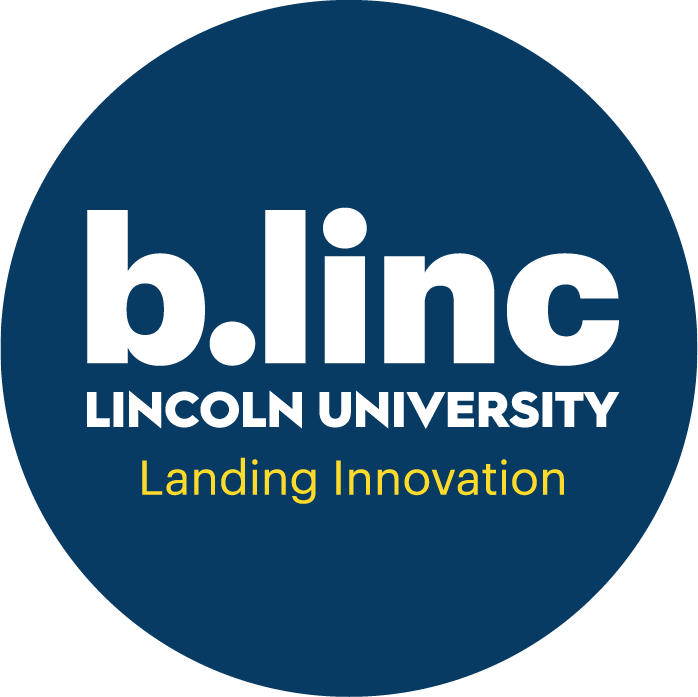With the abundance of wicked problems facing the ag industry, can we use Design Thinking as a tool to bring collaboration to the forefront of the collaboration space?
Design Thinking is a collaborative process for defining problems and generating creative ideas and concepts. It adopts designers human centred methods, tools, and sensibilities in order to initiatively develop a robust and sustainable product, services, organisations, and systems. So how can the agricultural science and research sector leverage these human centred empathetic approaches to unpack the shifting perspectives and opinions of stakeholders associated with wicked problems to deliver impactful solutions?
There are many organisations collaborating to bring design excellence to agri science innovation in an attempt to transform the agriculture industry, by addressing its contributions to the New Zealand economy, climate effects and impact of ecological biodiversity. The cross section of agricultural ingenuity and environmental ambition means the necessary raw ingredients are there to succeed – but these ingredients need to be combined with a strong design ethic if they’re to be embraced by consumers, farmers, and industry and create meaningful, sustainable change. How do we design science projects which deliver impact for stakeholders?
New Zealand can become world famous for bringing design excellence to agri science innovation – and these partnerships can be the catalyst that starts the movement.
Join us to hear from practitioners of this method as they give examples of successful projects they have delivered and how they believe design thinking can be used to multiply the impact of agri science on environmental sustainability and human health and wellbeing and what they are doing to make it happen.
Our Speakers
Professor Hamish Gow
Hamish is Professor of Agribusiness at Lincoln University. He has spent the past 30 years working globally in industry, government, and academia riding the waves of market liberalization around the world as he passionately applied design-led innovation to assist farmers and regional SMEs build innovative customer-focused business models and value chains that can successful launch agricultural, food, and technology products and services into local, regional and international markets.
Hamish currently teaches Contemporary Strategy and Design Thinking courses on the Massey EMBA program and supporting the Supply Chain Integrity Program for the Ministry of Primary Industries
Melanie Mark-Shadbolt (Ngāti Kahungunu ki Wairarapa, Ngāti Porou, Te Arawa, Ngāti Raukawa, Ngāti Tuwharetoa, Te Atiawa), is an indigenous environmental advocate who is a co-founder and the CEO of Te Tira Whakamātaki, a Māori environmental not-for-profit and home of the Māori biosecurity network. She is also the Deputy Secretary Māori Rights & Interests at the Ministry for the Environment and until recently was the Kaihautū Ngātahi Director Māori of New Zealand’s Biological Heritage National Science Challenge.
Melanie specialises in understanding and applying mātauranga Māori (Māori knowledge) to biosecurity and biodiversity issues. She has a specific interest in decolonising ideologies of conservation and restoration in order to address injustices and harm caused to indigenous peoples and our planet. Her work has covered research in stakeholder values, attitudes, and behaviours; social acceptability of management practices and risk communication; and the wider human dimensions of environmental health.
Melanie was shortlisted as a finalist of the Westpac Women of Influence awards in 2019, and alongside her TTW team has won a number of biosecurity awards including the inaugural Dave Galloway Innovation Award (NZ Biosecurity Institute) and the inaugural Māori Biosecurity Award (MPI). Melanie has served on a number of boards and advisory groups including the PMCSA Plastics Panel, 2020 & 2018 International Indigenous Research Conference organising committees, and a number of Biosecurity 2025 working groups. She currently serves on the boards of Project Crimson and Tāpui Aotearoa, the B3 Better Border Biosecurity’s Collaboration Council, Kauri Dieback & Myrtle Rust Strategic Science Advisory Group (SSAG), Wallaby eradication governance group, Fit for a Better World Science Accelerator Bundle, and a number of research programmes advisory panels / kāhui.
She is dedicated to working with organisations who are committed to meeting their Treaty responsibilities and addressing indigenous rights and racial equity.
Phil Morrison, ONZM
BA (UNSW), Exec MBA (Massey)
Phil is currently based in Invercargill. and has been free-lance consulting since February 2014, when he established Across Performance Limited while concluding his MBA research at Massey University. In recent years, Phil’s work has included delivery of leadership development training, postgraduate business education in strategy and innovation, and facilitation of strategy and co-innovation workshops in a variety of contexts. Phil currently co-chairs Southland’s Regional Forum, framing advice on freshwater management for the Regional Council.
From 2011 Phil worked for three years as a Senior Lecturer and Project Manager for Massey University’s Centre for Defence and Security Studies. In this capacity he managed the university’s commercial relationship with the Royal Brunei Armed Forces (RBAF), including programme development, coordination, and delivery of teaching activities in Brunei. Phil’s teaching activities also extended to delivery of postgraduate education to the New Zealand Defence Force’s Joint Command and Staff Course.
Previously, Phil enjoyed a 25-year career as a Regular Force officer with the New Zealand Army, progressing through a variety of command, staff, and instructional appointments. Highlights included three years as unit commander of an Engineer Regiment, a three-year posting to Canberra as Military Attaché at the NZ High Commission, and a year studying at the Singapore Armed Forces’ Joint Command and Staff College. Operational deployments to Cambodia, East Timor, and Iraq, as well as training exercises in various Pacific Island nations, also hold fond memories for Phil.
Ange McFetridge, Beef + Lamb NZ
Ange has a lifetime of experience living and working in agriculture. She has completed an action research based thesis on using Human-Centred Design in Agtech adoption and works for Beef + Lamb New Zealand in a design role.
Click here to see more events




